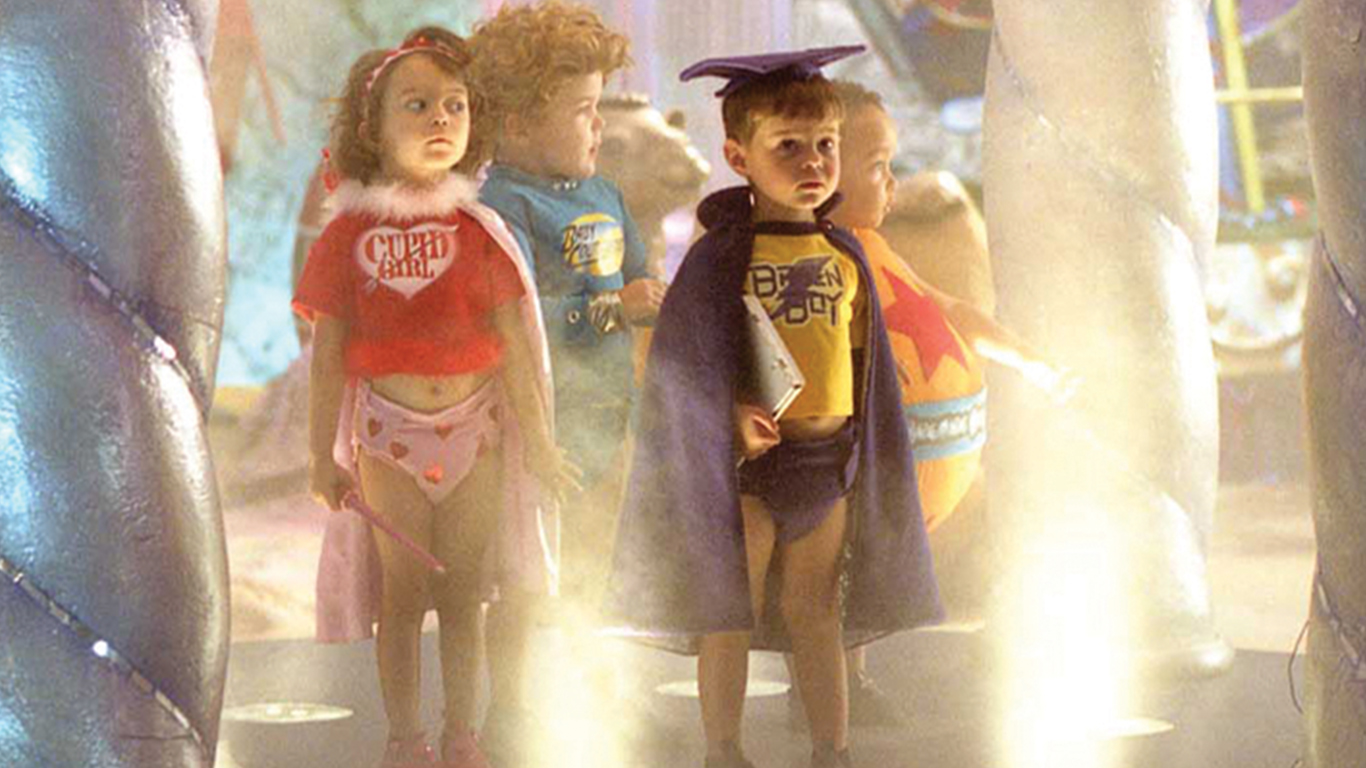
Movie sequels and prequels are more common than ever. At their best, sequels are a win for both the studios that produce them and the audiences who get to enjoy yet another installment of a familiar story. Not all movies are created equal, however. Some sequels leave moviegoers wishing they had never been made.
Major movie studios are almost certain to follow up a successful blockbuster with at least one sequel. It’s a safe investment, financially speaking. Audiences often want to see more of the characters and cinematic worlds that they already know they like. This can be seen in the ongoing success of popular franchises like Star Wars and Batman. Check out the best movie sequels of all time.
Sequels also can be lousy, however, letting down fans and sometimes signaling the end of a movie series. Bad sequels can be the result of less competent filmmakers than those responsible for the original movie, the absence of actors who made the original special or simply a lack of proper financing necessary to make a quality film.
But it’s not just good or successful movies that get sequels. Some bad sequels are made for movies that weren’t especially well received in the first place. Bad sequels are especially prevalent among the horror and comedy genres. Fans of these types of films may have higher tolerances for “bad” movies and are willing to give sequels a chance if they are in some way tied to a well-known earlier film, even if the original was critically panned. Any recognizability can be a boon to profitability, especially when working in these genres that also tend to be made with lower budgets.
24/7 Tempo has identified the 50 worst sequels of all time based on critic and audience ratings on the Internet Movie Database (IMDb) and Rotten Tomatoes. These are the sequels hated by viewers, professional critics and sometimes even the people involved in their making, like George Clooney, who regretted his performance as Batman in “Batman & Robin.”
To determine the worst movie sequels of all time, 24/7 Tempo created an index based on each film’s Rotten Tomatoes average critic rating, Rotten Tomatoes average audience rating and IMDb average user rating. To be considered, each film needed to have at least 10,000 total user ratings on both IMDb and Rotten Tomatoes, have 10 approved Tomatometer critic reviews and be classified as a sequel by IMDb. Editorial discretion was then used to determine which movies did not fully meet the qualifications of a sequel, such as reboots or film franchises that feature a consistent character but are otherwise unrelated with regards to storyline.
From the list of 50, the one with the absolute worst rating is “Superbabies: Baby Geniuses 2.” It was made in 2004, directed by Bob Clark and starred Jon Voight, Scott Baio and Vanessa Angel. Rotten Tomatoes critics rating gave it a rating of 2.2 out of 10.
Director Bob Clark’s original “Baby Geniuses” (1999) was not a critical hit, with just 2% of critics on Rotten Tomatoes giving it a good review. His 2004 follow-up managed to do even worse, receiving zero positive reviews. Audiences didn’t love it either. It currently holds a 1.9/10 rating on IMDb, making it the only film on the list to have a rating lower than 2.0. Writing for the Wall Street Journal, critic Joanne Kaufman called it “unspeakably ghastly.” The sequel managed to gross less than half of its $20 million production budget at the domestic box office, although this did not stop the production of a further three Baby Geniuses movies.
Are You Ahead, or Behind on Retirement? (sponsor)
If you’re one of the over 4 Million Americans set to retire this year, you may want to pay attention.
Finding a financial advisor who puts your interest first can be the difference between a rich retirement and barely getting by, and today it’s easier than ever. SmartAsset’s free tool matches you with up to three fiduciary financial advisors that serve your area in minutes. Each advisor has been carefully vetted, and must act in your best interests. Start your search now.
Don’t waste another minute; get started right here and help your retirement dreams become a retirement reality.
Thank you for reading! Have some feedback for us?
Contact the 24/7 Wall St. editorial team.




